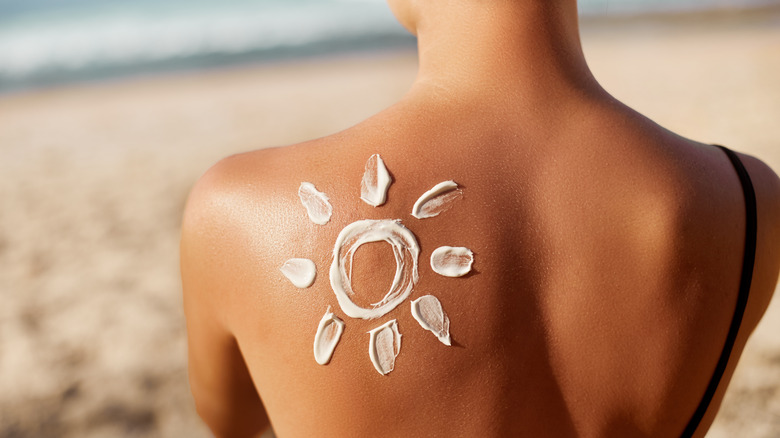Here's How Melanin Really Benefits Your Skin
Even though we see it every day, we tend to forget that our skin is our largest organ and a vital source of protection. It serves as a multi-layered shield from microorganisms, environmental factors like extreme temperatures, and it keeps our bodies regulated (via National Geographic). The skin also contains the pigment known as melanin, which is what gives us our wide spectrum of skin tones.
So what is melanin exactly?
While the first recorded description related to pigmentation occurred over 4,000 years ago, the actual origin of skin color remained a scientific mystery until just a few hundred years ago. And it wasn't until the mid-twentieth century that more advances in research provided a better understanding (via the National Institutes of Health). Specifically, the outermost layer of the skin, the epidermis, contains specialized cells called melanocytes, which produce melanin (via WebMD). According to Johns Hopkins, besides giving pigment to our skin, melanin also gives pigment to the iris of our eyes and our hair, and the amount of melanin we each have depends upon several factors that include race, genetics, and levels of sun exposure.
Can I increase the melanin in my skin?
But melanin does more than give us each our unique skin color. Scientists also tout melanin's health benefits. Specifically, melanin acts as a natural sunscreen, protecting our skin from harmful UV rays. It also exhibits antioxidant properties when our skin experiences UV light damage (According to Healthline).
Okay, you're sold. You want more of this melanin stuff! Is it possible to control the amount of melanin you produce?
According to Medical News Today, yes and no. There is ongoing research into this question and there is some evidence that certain nutrients may provide more defenses against UV rays and skin cancer. Also, researchers are investigating the viability of a chemical compound that shows promise. As far as "tanning pills," it's best to stay away from those until they are FDA-approved. And don't forget, while melanin protects against harmful rays, dermatologists still recommend that you apply sunscreen whenever you're out and about and your skin is exposed (via Yahoo).
It should also be noted that, conversely, it's possible for your body to overproduce melanin. This could be what's at the root of any dark brown spots you may find on your skin. If this is the case, consider upping your Vitamin C intake, via foods or supplements (via Insider).


